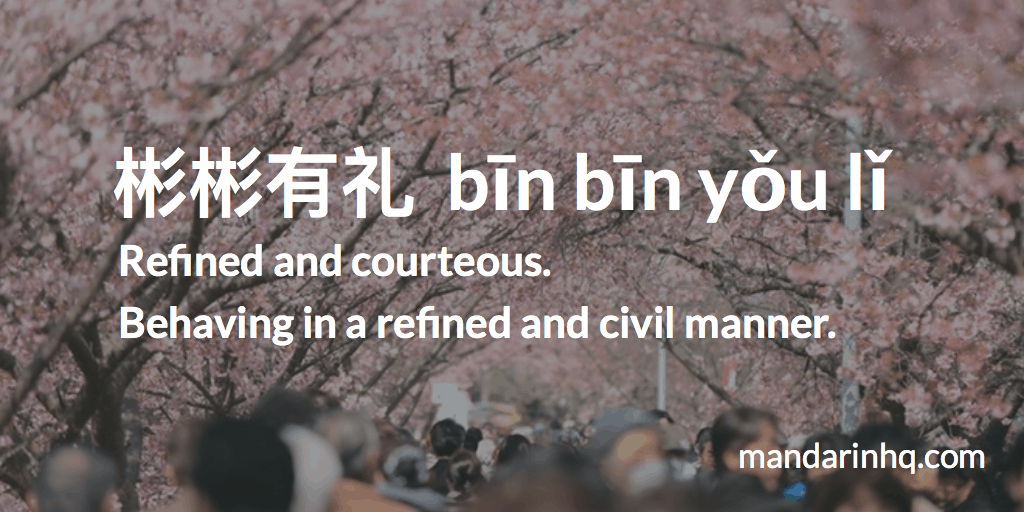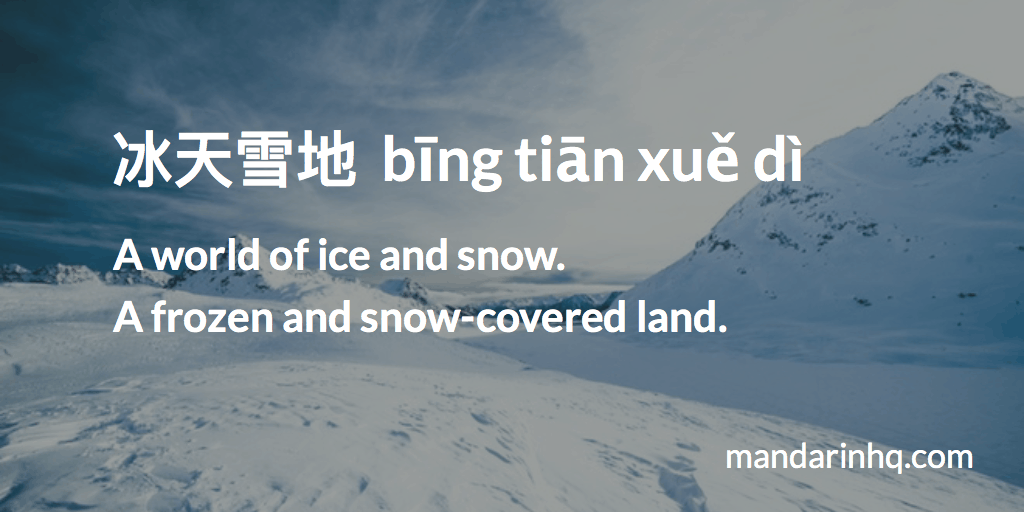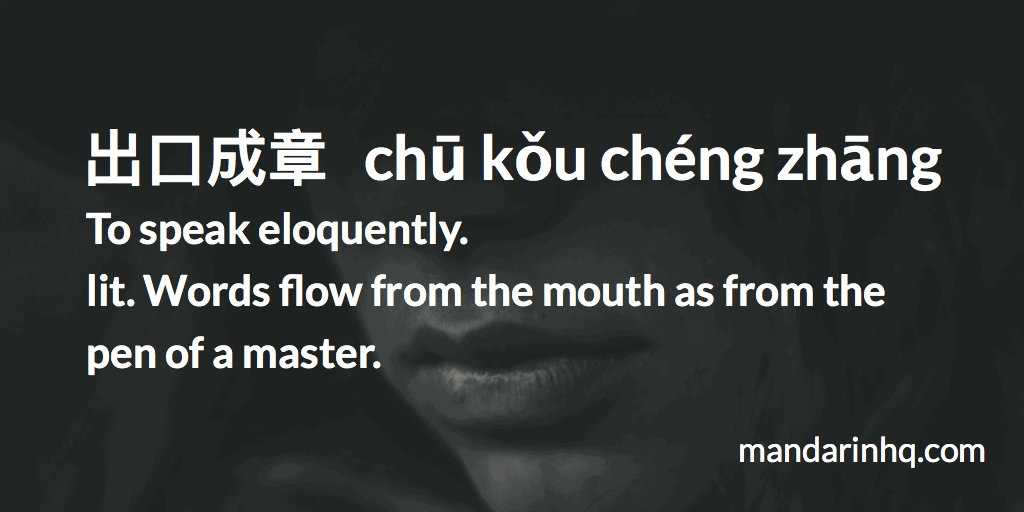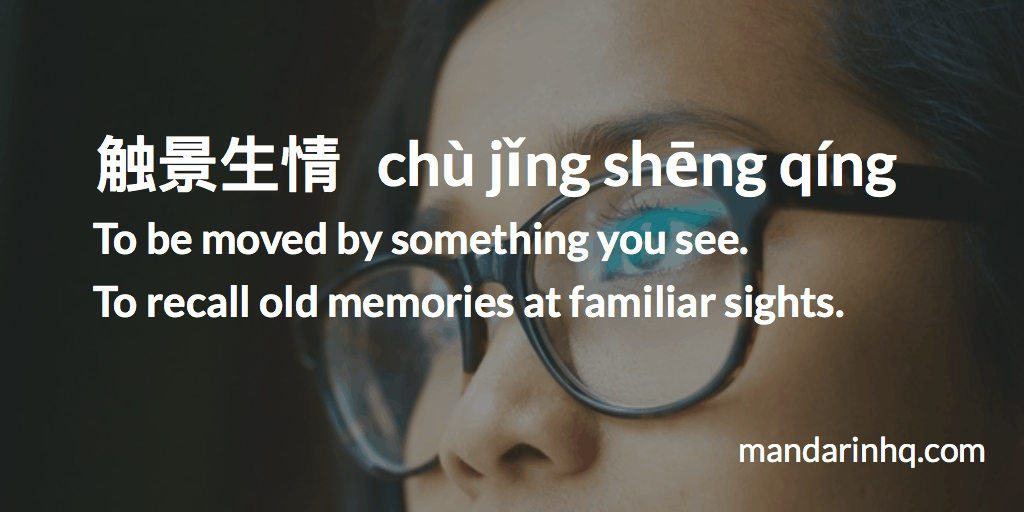This is part 2 of a 10 part series in which you'll learn a total of 60 Chinese idioms!
As described in part 1, 成语 chéngyǔ are a type of traditional Chinese idioms typically made up of just four characters.
But as we'll see in today's video, four characters is enough to package plenty of meaning into a vivid and concise format.
Common Chinese Idioms [7-12]
彬彬 bīn bīn: refined manner
有礼 yǒu lǐ: courteous / polite
Example:
他们尽量对发怒的顾客彬彬有礼。
tā men jǐn liàng duì fā nù de gù kè bīn bīn yǒu lǐ.
They try to deal politely with angry customers.
冰天 bīng tiān: ice in the sky
雪地 xuě dì: snow on the ground
Example:
南极圈⾥⼗分寒冷,⼀⽚的冰天雪地。
nán jí quān lǐ shí fēn hán lěng, yī piàn de bīng tiān xuě dì.
It is frigid at the Antarctic Circle, which is a world of ice and snow.
畅 chàng: enjoy / free from worry
所 suǒ: particle
欲言 yù yán: words that you want to say
Example:
每个⼈在会上都可以畅所欲⾔。
měi gè rén zài huì shàng dōu kě yǐ chàng suǒ yù yán.
Everyone speaks without inhibitions at the meeting.
称心 chèn xīn: satisfied / satisfactory
如意 rú yì: as one wants / according to one's wishes
Example:
你想要什么尽管说,我包你称⼼如意。
nǐ xiǎng yào shén me jǐn guǎn shuō, wǒ bāo nǐ chèn xīn rú yì.
Just tell me what you want, and I will get you everything you wish for.
出口 chū kǒu: to speak / to open one's mouth / to start to talk
成章 chéng zhāng: to form an article
Example:
诗⼈真是出⼝成章。
shī rén zhēn shì chū kǒu chéng zhāng.
The poet really speaks eloquently.
触 chù: to touch / to contact / access / in touch with
景 jǐng: scenery / sight
生 shēng: to arise / to come into being / to bring into being
情 qíng: feeling / emotion / sensation
Example:
路过旧操场时,我触景⽣情,想起了童年往事。
lù guò jiù cāo chǎng shí, wǒ chù jǐng shēng qíng, xiǎng qǐ le tóng nián wǎng shì.
When passing by the old playground, I recalled memories from my childhood.
You might also find these posts interesting:







